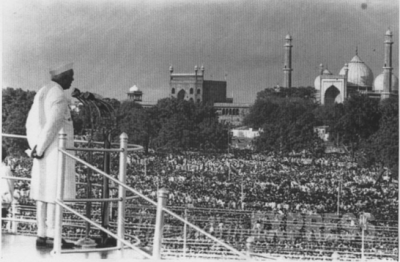
Jawaharlal Nehru based his nation-building on four essential components- socialism, democracy, secularism and non-alignment.
Nehru created his own brand of socialism which was based on the tenets of non-violence and democracy. He established a cooperative, socialist commonwealth and accelerated the path to industrialization. He also advocated the abolition of the Zamindari system.
Nehru believed that a sound democracy should have strong self-governance from the grass root level. He initiated the Panchayati Raj system because he believed that development should begin from below and not be dictated from above.
As for secularism, Nehru was a staunch protector of minorities and individual human rights. He stated in 1951, “If anyone raises his hand against another in the name of religion, I shall fight him till the last breath of my life, whether from inside the government or outside.”
Towards this end, he created a system of reservations in government services and educational institutions to eradicate social inequalities and disadvantages faced by scheduled castes and tribes.
Nehru’s foreign policy was based on the idea of non-alignment, where he refused to be courted by either of the two power blocs of the U.S. and the U.S.S.R. and preferred to chart a new course based on non-violence and peaceful cooperation among nations.
Picture Credit : Google




